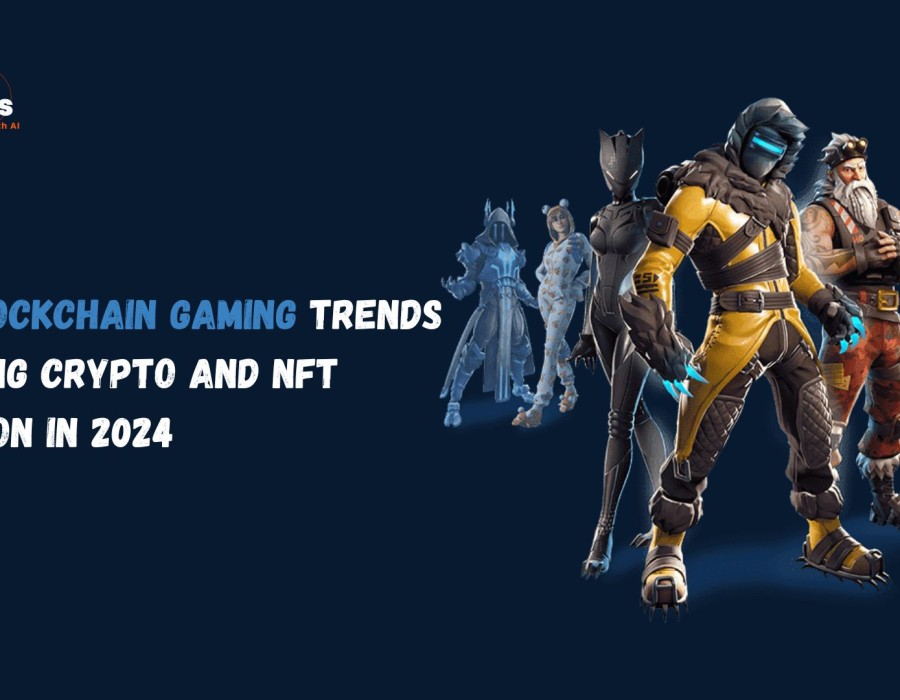Blockchain technology has expanded beyond its initial application in cryptocurrencies to change various industries, including gaming. Blockchain game creation is an exciting new opportunity in the gaming industry, providing distinct advantages and generating key trends that are transforming the landscape of gaming, cryptocurrencies, and non-fungible tokens (NFTs). Let's have a look at this creative area and its main features.
What is Blockchain Game Development?
Blockchain Game Development involves creating games that use blockchain technology in a variety of ways, including ownership of in-game assets, gameplay mechanics, and token economics. Unlike traditional games, blockchain games store game data on decentralized networks, allowing for real ownership of digital assets.
Benefits of Blockchain Game Development
True Ownership: With blockchain games, players have true ownership of in-game assets, allowing them to transfer or sell them outside the game environment.
Transparency: Blockchain technology ensures transparency in gameplay mechanics by storing all transactions and actions on a public ledger that anyone can access.
Security: Since game data is stored on a decentralized blockchain network, it is resistant to hacking and fraud, providing a secure environment for players.
Monetization: Blockchain games provide developers with new revenue opportunities by allowing them to sell in-game assets and integrate cryptocurrencies and blockchain-based economies.
Community Engagement: Blockchain games promote stronger communities by encouraging players to participate in the game's ecosystem through rewards and governance mechanisms.
Overall, the benefits of blockchain game development extend beyond traditional gaming experiences, offering players new opportunities for ownership, engagement, and monetization in a transparent and decentralized environment.
Top Blockchain Gaming Trends Boosting Crypto and NFT Adoption
Play-to-Earn Games:
Play-to-earn games allow players to earn bitcoin or valuable in-game goods by completing gaming tasks. This approach has acquired great support, particularly in areas with limited access to traditional financial services.
Cross-Platform Compatibility:
Blockchain games are increasingly being developed with cross-platform compatibility, allowing players to access their accounts and assets across multiple devices and platforms seamlessly.
Integration of DeFi:
The integration of decentralized finance (DeFi) protocols into blockchain games allows players to earn passive income by staking their in-game assets or participating in liquidity pools.
Metaverse Development:
The concept of the metaverse, a virtual shared space where users can interact with each other and digital environments, is gaining popularity in the blockchain gaming industry. Developers are working on creating interconnected virtual worlds where players can explore, socialize, and engage in various activities.
NFT Marketplaces:
The rise of gaming-specific NFT marketplaces has made it easier to trade in-game assets, increasing the use of blockchain technology in the gaming sector. These marketplaces provide gamers with a secure environment for buying, selling, and trading NFTs.
Conclusion:
Blockchain game development transforms the gaming industry by giving players true ownership of in-game assets, transparency, security, and new opportunities. Entrepreneurs and businessmen worldwide can capitalize on these trends to tap into the lucrative market of blockchain game development.
Follow Us For More Updates
Mail: [email protected]
WhatsApp: +91 9080594078





Comments